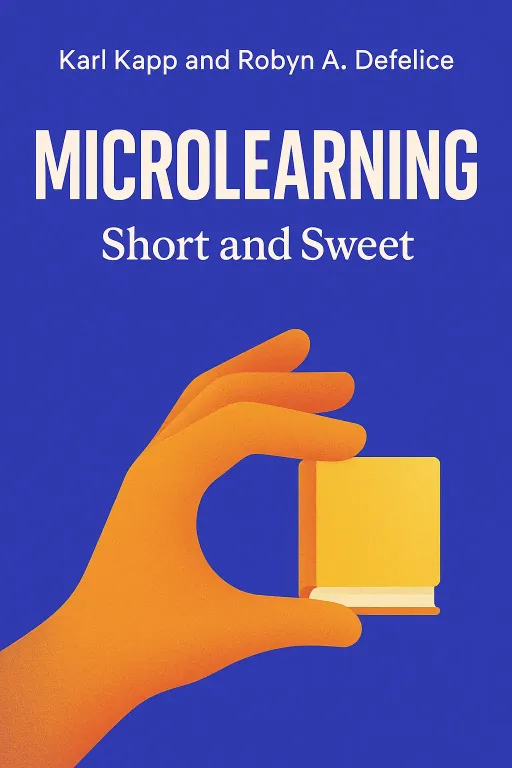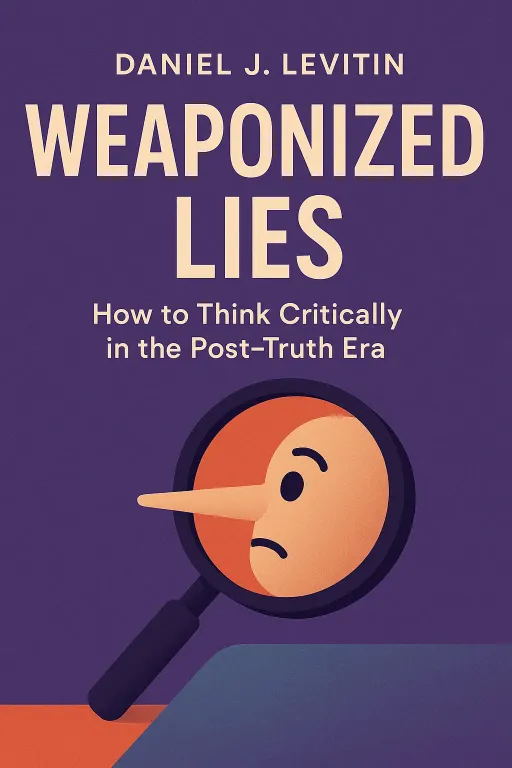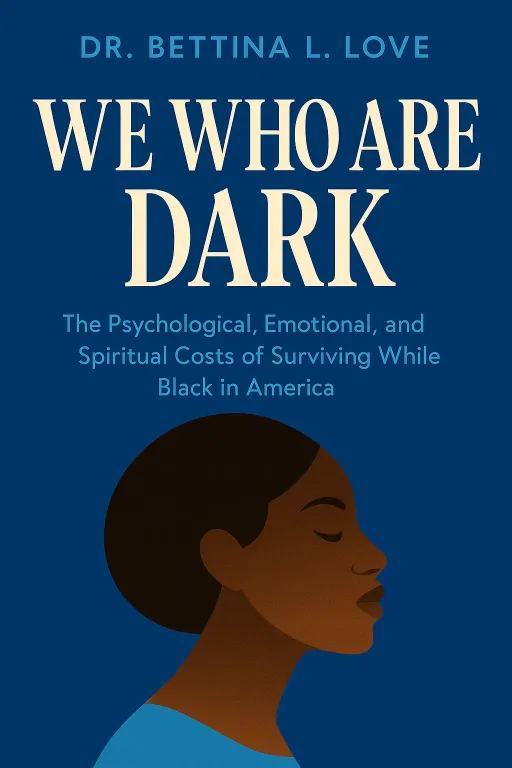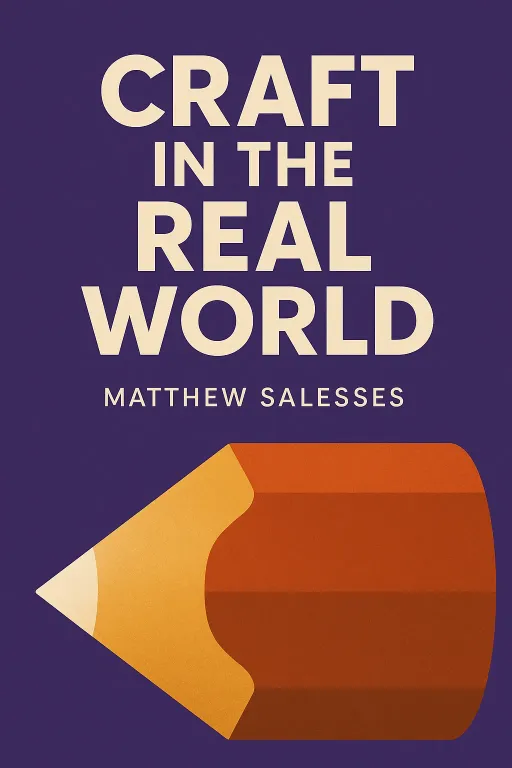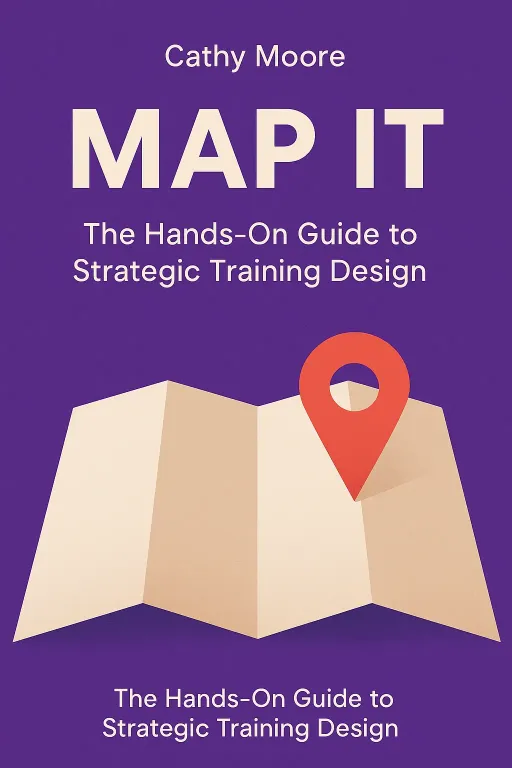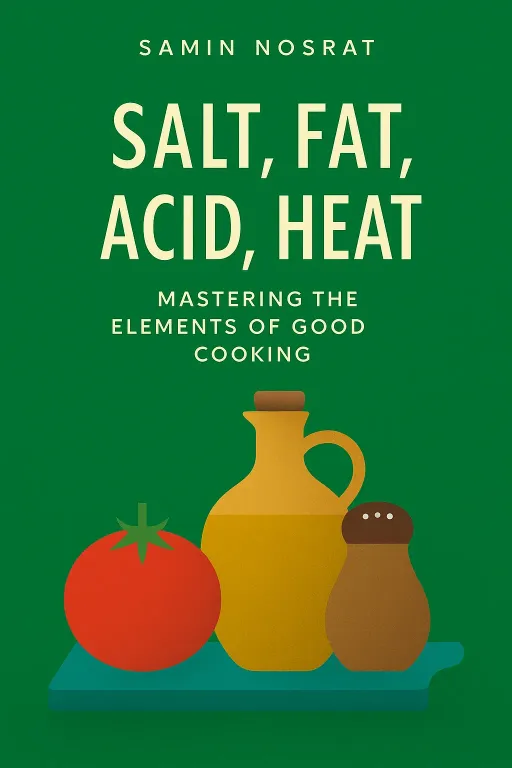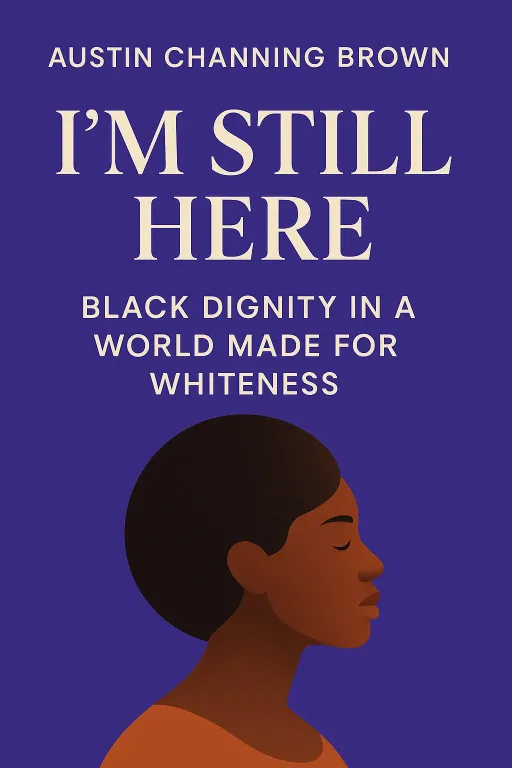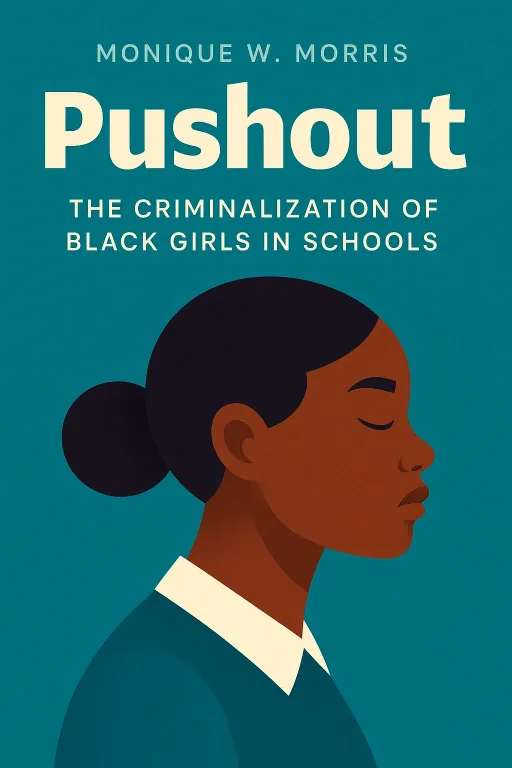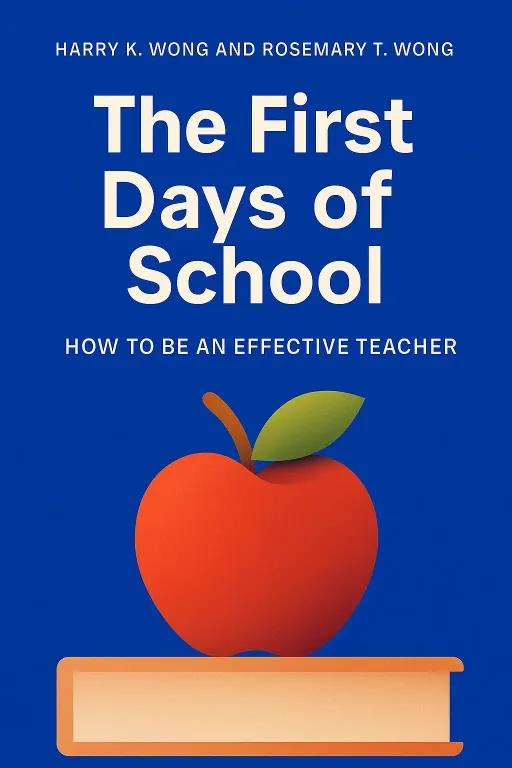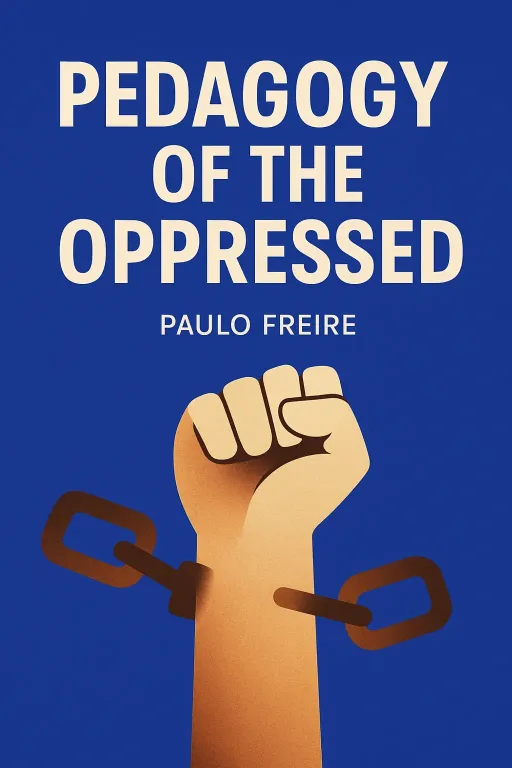
Your Mind Is Not a Bank
13 minGolden Hook & Introduction
SECTION
Laura: Sophia, what’s the one piece of advice every teacher gets? Sophia: Oh, that’s easy. “There are no stupid questions.” Laura: Exactly. But what if the real problem isn’t stupid questions, but a system designed to prevent us from asking any meaningful questions at all? Sophia: Whoa, that’s a heavy start. You’re saying the whole system is rigged? Laura: That's the explosive argument at the heart of Pedagogy of the Oppressed by Paulo Freire. And to understand why he’d say something so radical, you have to know who he was. This wasn't an academic in an ivory tower; Freire developed these ideas while in political exile from Brazil after the 1964 military coup, which saw his literacy programs as a subversive threat. Sophia: So he was literally a wanted man for teaching people how to read? Laura: Precisely. His method was so effective—he famously taught 300 sugarcane workers to read and write in 45 days—that the regime considered him a danger. And that experience is what fuels his first major, and deeply unsettling, idea about education itself.
The Great Deception: How 'Education' Can Be a Tool of Control
SECTION
Laura: Freire argues that for centuries, what we've called "education" is often something else entirely. He calls it the "banking concept." Sophia: The banking concept? Like, it has to do with money? Laura: In a way, yes. Think of it like this: the teacher is the subject, the one with all the knowledge. The students are empty bank accounts, passive objects. The teacher's job is to make "deposits" of information into these empty accounts. Sophia: Okay, I can picture that. The teacher at the front of the room, just talking, and we're all just trying to write it down. It’s a bit boring, but is it really that sinister? Laura: Freire would say it is. Because in this model, the world is presented as a static, finished thing. The teacher knows everything, the students know nothing. The teacher thinks, the students are thought about. The teacher talks, and the students listen meekly. He has this devastating line: "The more completely she fills the receptacles, the better a teacher she is. The more meekly the receptacles permit themselves to be filled, the better students they are." Sophia: Huh. That’s… uncomfortably familiar. It’s not about learning to think, it’s about learning to repeat. Laura: Exactly. It’s a system of control. It domesticates people. It conditions them to accept the world as it is, not to question it. And this has a profound psychological effect. Freire tells these heartbreaking stories from his work with peasants in Brazil. He talks about their "culture of silence." Sophia: What does he mean by a 'culture of silence'? Laura: It's this deep-seated belief in your own inferiority. He describes how peasants would internalize the oppressor's view of them. They'd hear so often that they were "good for nothing, know nothing, and are incapable of learning anything" that they eventually became convinced of their own unfitness. Sophia: Wow. So they believe the very narrative that keeps them down. Laura: Yes. He gives this powerful example of a peasant who says, "What can I do? I'm only a peasant." They see the boss as a superior being. They don't even question the structure because the "banking" system of their entire life has taught them that their role is to be a passive recipient of orders, not an active creator of their own reality. Sophia: This is so much bigger than just a boring lecture. It’s about how power perpetuates itself by convincing people they are powerless. It reminds me of those corporate trainings where you're just supposed to absorb the new "synergy" model from a PowerPoint and never, ever ask if the model actually makes sense. Laura: That's a perfect modern analogy. The goal is compliance, not critical engagement. And Freire makes a truly radical claim here. He says this kind of education is a form of violence. Sophia: Hold on, violence? That feels like a strong word for a classroom. We're not talking about physical harm. Laura: Freire defines it differently. He says any situation where one person's choices are imposed on another, hindering their "vocation to be more fully human," is an act of violence. By treating students as objects, the banking model dehumanizes them. It robs them of their agency, their creativity, their very ability to question and shape their world. It's a soul-crushing violence. Sophia: Okay, when you put it that way, it’s much more chilling. It’s not about physical bruises, it’s about a kind of psychic death. You’re taught to be a thing, not a person. Laura: A thing that can be managed. And that is incredibly useful for an oppressive system. But Freire doesn't just leave us in despair. He offers a powerful, and equally radical, way out.
The Practice of Freedom: Dialogue as a Revolutionary Act
SECTION
Sophia: I'm almost afraid to ask. If the 'banking' model is the problem, what's Freire's solution? Just let everyone talk about whatever they want? An educational free-for-all? Laura: Not at all. His solution is just as structured, but it's built on a completely different foundation. He calls it "problem-posing" education. Sophia: Problem-posing. So instead of depositing answers, you pose problems. Laura: Precisely. In this model, the teacher is no longer the depositor. The teacher and the students become co-investigators. They stand side-by-side, looking at a problem in the world, and they investigate it together. The teacher isn't imparting knowledge; they are creating the conditions for knowledge to be co-created. Sophia: That sounds great in theory, but what does it actually look like? Laura: It looks like dialogue. But for Freire, "dialogue" is a very specific, powerful act. It's not just chatting. He says authentic dialogue requires five essential ingredients: love, humility, faith, hope, and critical thinking. Sophia: Okay, I have to stop you there. Love, humility, faith? This is starting to sound less like a political text and more like a spiritual retreat guide. How does 'love' dismantle an oppressive system? Laura: It’s a fantastic question, and it gets to the core of his argument. For Freire, love isn't a sentimental feeling. It's a profound commitment to the other person's humanity. It's the act of fighting for their liberation. Humility is recognizing that you, the teacher or leader, don't have all the answers. Faith is a deep belief in the people's power to create, to know, and to transform their own reality. Without these, any attempt at dialogue becomes a farce. It becomes, as he says, "paternalistic manipulation." Sophia: So if you don't truly believe the people you're 'helping' are capable, you're just another oppressor in disguise. Laura: You are. You're just using a friendlier method of control. He has this incredible story from his work in Chile that shows what this looks like in practice. The investigators were working with tenement residents in Santiago and wanted to discuss alcoholism. Sophia: So under the banking model, they would have given a lecture: "Here are the dangers of drinking." Laura: Exactly. But in the problem-posing model, they presented a picture—a "codification," as Freire calls it. The picture showed a drunk man staggering down the street while three well-dressed men stood talking on a corner. Sophia: And what happened? Laura: The residents didn't just condemn the drunk man. They started a heated debate. One person said, "That drunk man is the only one of the four who is a productive worker. He works all day, earns a pittance, and gets drunk because he’s worried about his family. He’s the only one useful to his country." Sophia: Wow. They completely flipped the script. They saw themselves in him. Laura: They saw their own reality reflected in that image. The conversation wasn't about the moral failing of one man; it became about low wages, exploitation, and the feeling of being trapped. The investigators learned more about the residents' worldview in that one dialogical session than they ever could have with a questionnaire. The people were naming their world, together. Sophia: That gives me chills. They weren't being taught about their problems; they were discovering the root causes themselves. That’s real power. Laura: That is the practice of freedom. It's not a gift given from on high. It's something you achieve through praxis: the constant cycle of reflection and action upon the world in order to transform it. It’s a messy, difficult, and deeply human process. Sophia: And it’s a process that doesn’t just stay in the classroom, right? This feels like it’s building towards something much bigger. Laura: Oh, absolutely. Freire takes these principles and scales them up into a full-blown theory of cultural and political revolution.
From Classroom to Culture: The Blueprint for Liberation
SECTION
Laura: And that act of 'naming the world' together is exactly how this scales up from a classroom to a full-blown cultural movement. In the final part of the book, Freire contrasts the tools of the oppressor with the tools of the liberator. Sophia: Like a revolutionary playbook. Laura: In a sense, yes. The theory of antidialogical action—the oppressor's playbook—has four main tactics: conquest, divide and rule, manipulation, and cultural invasion. Sophia: That sounds pretty familiar from history class. Conquest is obvious, divide and rule is classic empire strategy. But what does he mean by 'cultural invasion'? Laura: Cultural invasion is when the oppressors impose their worldview, their values, their patterns of behavior onto the oppressed until the oppressed see the world through the oppressors' eyes. It’s the ultimate tool of domination because it makes the oppressed complicit in their own subjugation. It's the peasant believing he's unfit, the colonized person believing their own culture is inferior. Sophia: It’s the final stage of the 'banking' model, but for an entire society. Laura: Perfectly put. Now, against that, Freire proposes the theory of dialogical action. Its tools are the exact opposite: cooperation, unity for liberation, organization, and cultural synthesis. Sophia: Cultural synthesis. So instead of invasion, it's a blending? Laura: It's a co-creation. It's when leaders and the people work together, respecting each other's worldviews, to forge a new culture. This is where Freire's ideas become most radical, and he uses a very powerful example to illustrate it: Che Guevara. Sophia: The revolutionary himself. How does he fit in? Laura: Freire writes about Che's experience in the Sierra Maestra during the Cuban Revolution. Initially, Che was full of mistrust. He saw the peasants as unreliable. But through daily contact, through living with them, providing medical care, and listening to their stories, he underwent a profound transformation. Sophia: He started a dialogue. Laura: A deep, existential dialogue. He wrote that this "communion" with the people transformed him. He realized that the revolutionary leaders couldn't just have a plan and impose it. They had to learn with the people. The peasants, in turn, became the "forgers" of the guerrillas' revolutionary ideology. Sophia: So this is why so many top-down social movements or non-profits fail? Because the leaders, however well-intentioned, haven't actually had that dialogue with the community they claim to represent. They're still operating on a banking model. Laura: Freire would say that's exactly right. He argues that revolutionary leaders must "die" to their old, often privileged, selves and be "reborn" through and with the people. It's the only way to achieve true communion and avoid becoming a new kind of oppressor. Sophia: And this is where the book gets really controversial, isn't it? Critics often point to this section and say that Freire's model, with its 'revolutionary leaders,' can feel a bit directive. That the leader is still guiding people towards a pre-determined conclusion about their own oppression. Laura: That's the central tension of the entire book, and it's a valid critique to engage with. How do you facilitate liberation without it becoming a new form of indoctrination? Freire's answer is that it all comes back to that foundation of love and humility. A true dialogical leader is always open to being wrong, to being changed by the people. But the line is incredibly fine, and it's a risk inherent in any project of social transformation.
Synthesis & Takeaways
SECTION
Sophia: Okay, this has been a whirlwind. We’ve gone from a classroom lecture to the mountains of Cuba. After all this, what's the one thing we absolutely cannot miss about this book? Laura: It’s that education is never neutral. That is the core, unshakable truth of this book. It is either an instrument that domesticates us, that teaches us to adapt to an unjust world and accept our place within it... or it is the practice of freedom. It's the tool that gives us the power to critically perceive our reality and transform it. Sophia: And that choice is being made constantly. Laura: In every classroom, every community meeting, every corporate boardroom, every family conversation. The banking model is the default. It's easy. Problem-posing dialogue is hard. It's risky. It requires courage. Sophia: It requires, as Freire says, a faith in people. Laura: A faith that is often tested but is ultimately the only thing that makes liberation possible. He forces us to ask a really uncomfortable question: Is our own education, and the way we educate others, an act of love or an act of control? Sophia: That is a question to sit with. And it makes me think about all the moments I just passively accepted information instead of questioning it. We’d love to hear your thoughts on this. What was your 'banking' education moment, or have you ever experienced true 'problem-posing' dialogue? Find us on our socials and let us know. Laura: This is Aibrary, signing off.
